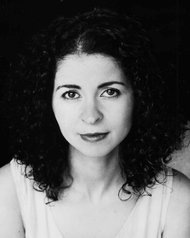Source: The New York Times
By Laila Lalami
My mother was abandoned in a French orphanage in Fez in 1941. That year in Morocco, hundreds of people died in an outbreak of the plague; her parents were among the victims. Actually, no, they died in a horrific car crash on the newly built road from Marrakesh to Fez. No, no, no, my grandmother died in childbirth, and my grandfather, mad with grief, gave the baby away. The truth is: I don’t know how my mother ended up in a French orphanage in 1941. The nuns in black habits never told.
Growing up in Rabat, I felt lopsided, like a seesaw no one ever played with. On my father’s side: a large number of uncles, cousins, second cousins, grandaunts, all claiming descent from the Prophet Muhammad. On my mother’s side: nothing. No one. Often I imagined my mother’s parents, the man and woman whose blood pulsed in my veins but whom I had never seen.
I would have called them Ba-sidi and Mi-lalla. Like my paternal grandfather, Ba-sidi would have been old but active. He would have retired from a career in the police and spent his days performing El Melhun, Moroccan sung poetry, with his friends. Like my paternal grandmother, Mi-lalla would have worn long, rustling caftans, in which I would have sought refuge every time I got into trouble. She would have taught me all her herbal cures and hennaed my hands before each Eid.
My mother did not take part in these fictions. She spoke little about her childhood in the orphanage. Sometimes she hummed a French lullaby that one of the nuns taught her. I went to sleep on many a night to the sound of “Au clair de la lune” or “Fais dodo, Colas.” But other times, a wave of resentment welled within her, and she would describe being forced to eat on a dirty table from which chickens were allowed to feed. Naturally I developed an early and lifelong affinity for literary orphans, like Oliver Twist and Jane Eyre. Later, when I became a novelist, orphans and abandoned children turned up in my work, unbidden.
On my birthday in February, my husband and I were drinking our morning coffee when he slipped a small box across the kitchen table. Inside was a DNA test kit. “You can use it to find out more about your mom,” he said.
“But what if this company sells my genetic data?” I asked.
“You can find out more about your mom.”
“Like, to an insurance company. Or even a government agency. What about that?”
“You can find out more about your mom!”
Optimism, that peculiar American trait — it was impossible to resist it. So I sent a saliva sample, and six weeks later, my results were ready. My health profile listed a series of traits that made me smile with recognition. I had long ago given up drinking milk; now I found out that I was most likely lactose-intolerant. I had always assumed that my strong stomach was attributable to a third-world childhood; it turned out I had a natural resistance to norovirus. But the profile had sobering news too: I had an elevated risk of coronary heart disease and Alzheimer’s disease. No one on my father’s side of the family had heart problems or dementia. They might have come from my mother’s family.
Finally, I opened the ancestry report. My maternal line was K, a haplogroup commonly found among populations of the Near East, Europe and North Africa. The test also identified relatives on my maternal side: distant cousins in Finland, France and the United States. Their locations intrigued me. How had the descendants of my mother’s relatives ended up in such far-flung places?
Or was my mother the one from a far-flung place? After all, she was born in the middle of a world war, when refugees were fleeing in all directions. Perhaps her parents were displaced and ended up in Morocco, where they had to begin new lives. It would have been difficult, in such times, to care for a newborn.
So it was that, in just a few moments, I found myself returning to those childhood days when I used to dream up different families, and different fates, for my mother. What science gave me, in the end, was no different from what my own imagination had fed me for many years — stories. The search was not over. The search would never be over. And not even science could help fill out the abyss I grew up with. Only stories could.
Laila Lalami is the author of “Secret Son.” Her new novel, “The Moor’s Account,” will be published by Penguin Random House in 2014.

No comments:
Post a Comment